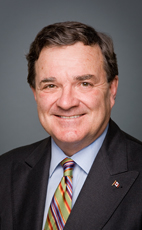Mr. Speaker, I am sure the member opposite will understand that I rarely confirm anything written in the Toronto Star having had some experience in that place over the years.
I assure the member opposite that we do intend to keep our commitment to reduce the GST. This is a tax which a former leader of the party opposite in 1993 said should be scrapped entirely. I cannot understand why the member opposite would be against this government reducing the GST to the benefit of all Canadians by one point.

